Nothing is more promising than countries putting aside hubris and ideological differences to invest in our shared future, observes Durga Sreenivasan, a delegate at COP28.
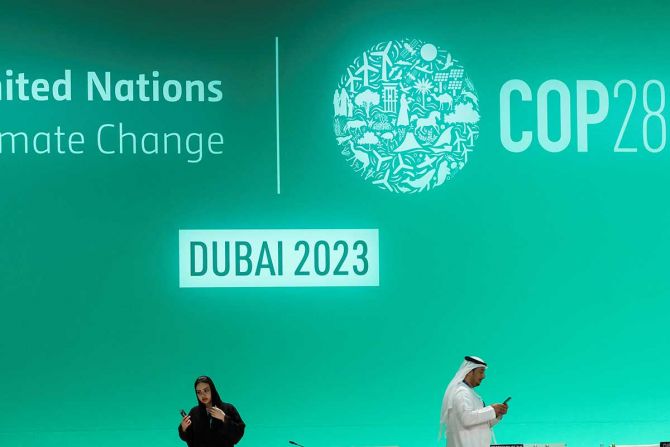
Over the years, the Conferences of the Parties to the UNFCCC have become battlegrounds for ideas to follow up on the sustainable development gains of Rio de Janeiro's 1992 Agreement (external link).
Governments, industries and political activists have a common objective of sustainability, and approached them by different means at the conference.
Industries push governments towards development, while activists most clearly stated the need for equity and climate justice.
My days at COP 28 establishing that equity and justice can be sought out at all levels was at first tumultuous.
The draft Global Stocktake Outcome (COP28's final document) presents a mixed bag -- a few large policy wins alongside instances of words used to smudge the final outcome.
The smudging of words, however, presents an opportunity: It leaves room for us to create the radical policies needed to keep global warming to 1.5ºC.
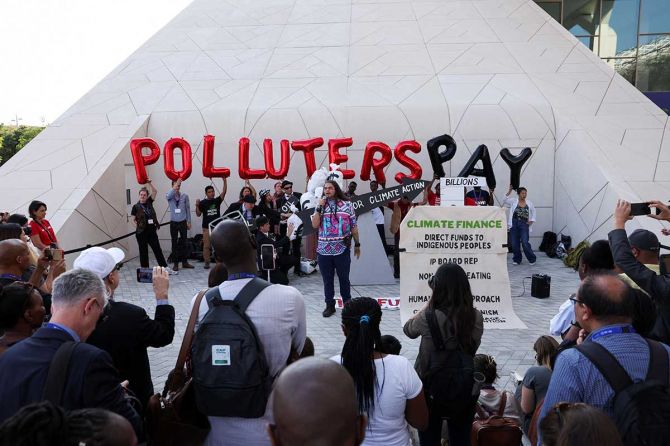
In order to understand and collaborate around this, my focus at the conference was working with those around me to advocate for policy outcomes that are equitable for all of society.
In terms of advocating for equity, this is the idea that the costs, benefits, and opportunities of the policies created to address the climate crisis are distributed fairly in society.
A first step is repaying the losses of those who have suffered disproportionately from the climate crisis, with funding being moved from those who have received disproportionate gain from the industries propogating the crisis.
The second aspect of this is the just distribution of benefits spurred by the positive innovations and infrastructure created to address the crisis, such as technological and energy centric outcomes.
Here's a rundown of the policies we advocated for:

Regarding the remaining items on the docket for discussion at COP28, the synthesis report of the first global stocktake published in September of this year determined that the world was not making sufficient progress in achieving the objectives set out in the Paris Agreement.
According to the UN's calculations, the implementation of the Nationally Declared Commitments by countries will result in an 8.8% increase in emissions from 2020 levels by 2030.
The joint statement has highlighted several initiatives to facilitate the attainment of the goals of the Paris Agreement. These measures aim to enhance cooperation among member states, prevent unnecessary repetition of actions, and optimize the utilisation of shared resources.
Let's take this text and lay it against the policies we advocated for.

 IMAGE: Durga Sreenivasan. Photograph: Kind courtesy Durga Sreenivasan/Facebook.com
IMAGE: Durga Sreenivasan. Photograph: Kind courtesy Durga Sreenivasan/Facebook.comIn order to face up to net zero by 2050, a Yale study guides us to the answer: 'The report found that the net greenhouse gas emissions from human activity would need to be 43% lower by 2030 compared to 2019 to maintain a two-thirds chance of either meeting the long-term 1.5°C goal or only briefly overshooting it.'
This means immediate action at the local, regional, and national levels are essential. We must go from the current 8.8% increase to the 43% decrease needed.
The IMF says that this phasing out of Fossil Fuels (external link) subsidies 'would ensure that global fossil fuel CO2 emissions 43% below baseline levels in 2030 -- or 34% below 2019 emissions.
This reduction is in line with the 25% to 50% reduction needed to contain global warming to the Paris goal of 1.5ºC.
Taking the IMF at their word, this was a huge policy win that will have a tangible impact in the upcoming year.
Now it's time to ensure this language around the subsidies is followed through with. On the surface level, I am very enthused: It isn't every day that a policy you've advocated for gets put in place by governing bodies, much less the UN's complex, multilateralism.
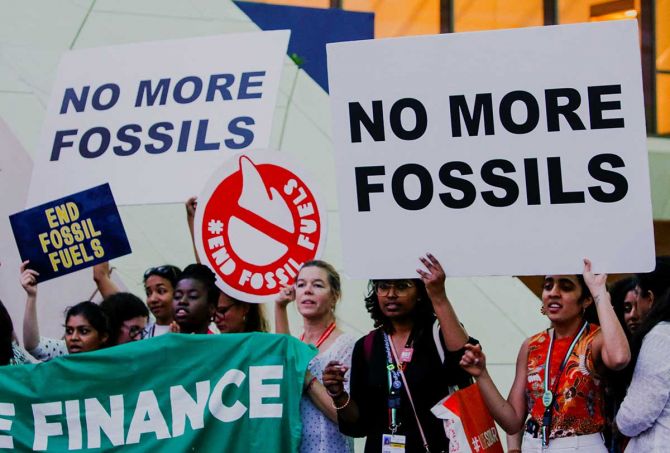
In terms of prioritising marginalized communities like we begged for, the language can be stronger and mandates should be created.
There is currently wording that 'recognizes' the need to prioritize vulnerable communities -- however, we have not received clear indicators of how our most vulnerable groups will be prioritized.
What we still need are Nationally determined commitments based on the need to transition away from fossil fuels and a timeline for when and how our most marginalised communities will receive funding.
The actualisation of the UN Loss and Damage Fund is immense, yet most certainly a baby step.
A mere $700 million was pledged out of the trillions needed for marginalised communities to mitigate and adapt to the climate crisis -- which means we haven't even reached 0.2% of the over $1 Trillion needed (external link).
As opposed to completely agonising over this, we can view this as an opportunity for the fund to grow tenfold (or hundredfold, in reality) in the upcoming year.
At the conference itself, folks of all ages gathered to advocate in their niches. It was a true privilege to make and deepen connections with those who had fiery passions for a wide swathe of issues spanning the sustainable development goals.

My aunt and uncle's presence as guardian angels in Dubai allowed me to feel safe amidst sickness and personal hardship, and they helped me stay focused as I was pulled in many different directions.
The train station closest to their house was even dubbed 'equiti' -- which I lovingly made into a symbol of my promise to advocate for equity.
The first steps towards the UN Loss & Damage Fund displays an international understanding that we must prioritize equity if we are to achieve the Sustainable Development Goals.
Nothing is more promising than countries putting aside hubris and ideological differences to invest in our shared future.
Honorable Mentions: I brought my grandfather, T P Sreenivasan, to the last day of the conference! What an honor to take the former Vice Chairman of BKCOP 1 with me.
Thanks for coming!
Thank you to my aunt and uncle, dubbed chits and chitsy, for making Dubai a second home with your evergiving care.
Read the Stocktake Draft here (external link). Submit comments on the Stocktake here (external link) while there's still time!
Make an impact with me:
Get in touch: Instagram ¦ LinkedIn ¦ Facebook ¦ Twitter
Feature Presentation: Ashish Narsale/Rediff.com

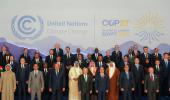








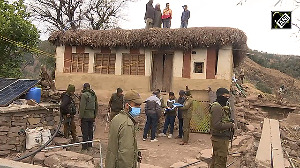
 © 2025
© 2025